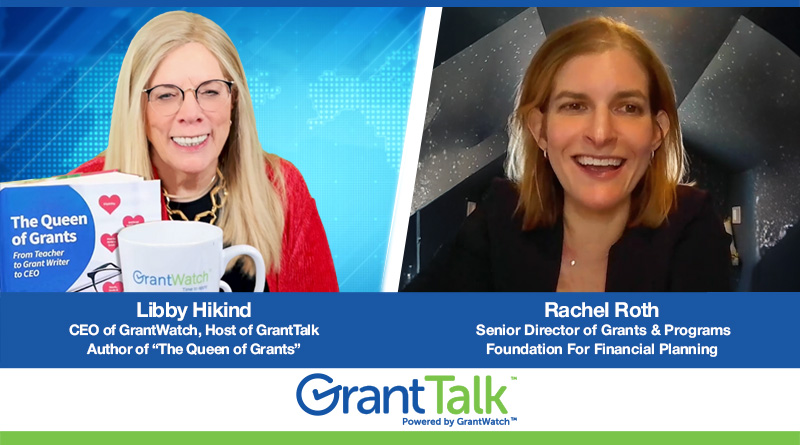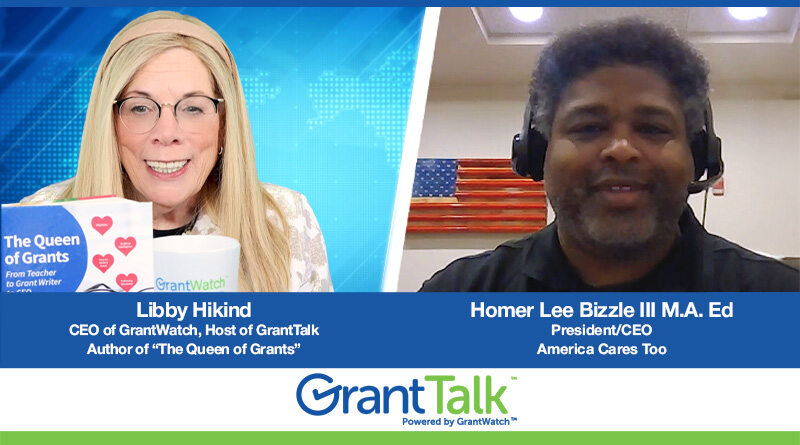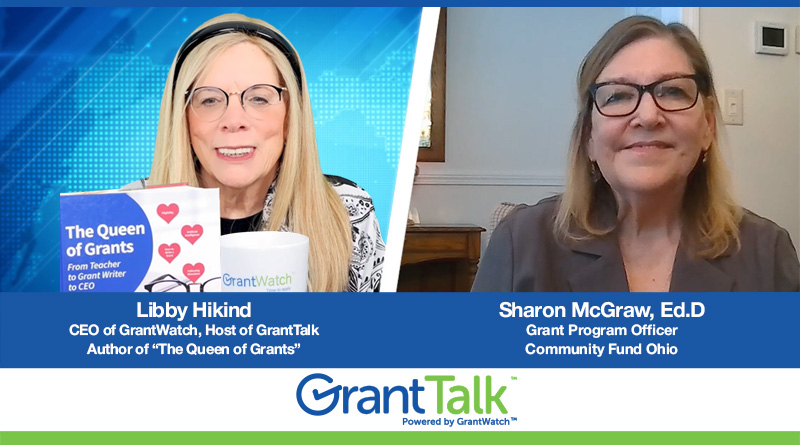In this episode of GrantTalk, Libby Hikind, founder and CEO of GrantWatch and author of The Queen of Grants, chats it up with two dynamic grantmakers from the Council on Library and Information Resources (CLIR). Alyson Pope and Sharon Burney bring their expertise as project officers overseeing grant funding, offering invaluable insights into what happens after a grant is submitted. Join us as we look at the world of funding from the perspective of those who make it possible.
Journey to CLIR: Sharon Burney and Alyson Pope
Every grant has a story, and so do the people behind them. Sharon Burney and Alyson Pope, project officers at CLIR, both began their careers in libraries before transitioning to grantmaking. Sharon spent over 20 years in academia at the University of Florida’s African American Studies program before a former CLIR postdoc encouraged her to apply for a role that perfectly fit her skills. That opportunity brought her back to libraries as a program officer. She helps oversee two regranting programs funded by the Mellon Foundation.
Alyson’s path started in the stacks as a work-study student at Carnegie Mellon’s Hunt Library. She later became a librarian in both public and academic settings, gaining firsthand insight into the financial challenges libraries face. Her awareness of CLIR’s Recordings at Risk program led her to explore grantmaking as a way to support institutions she cared about. Now, on the other side of the funding process, she helps libraries, archives, and museums secure the resources they need. With their deep knowledge of both grant funding and the institutions they serve, Sharon and Alyson offer a unique perspective on what it takes to secure grants and make the most of them.
CLIR
The Council on Library and Information Resources (CLIR) is an independent, nonprofit organization dedicated to enhancing research, teaching, and learning environments. It collaborates with libraries, cultural institutions, and higher learning communities. In addition, CLIR fosters cross-disciplinary intellectual leadership, strategic programs, and professional development opportunities. Its initiatives include the Digital Library Federation, the Digitizing Hidden Special Collections and Archives program, and the Recordings at Risk program, all aimed at improving access to information and preserving cultural heritage.
Available Grants from CLIR
CLIR offers two key grant programs aimed at preserving at-risk historical materials through digitization. These grants help institutions protect valuable collections from threats such as climate change, natural disasters, and material degradation.
- Digitizing Hidden Collections: Amplifying Unheard Voices
- Award Amount: $50,000 to $350,000
- Application Process: Two-step process; initial application due October 30, with a final round in the winter
- Purpose: Funds the digitization of materials that amplify underrepresented voices, including marginalized communities based on race, gender, sexuality, disability, and religion
- Eligibility: Collections must not have been previously digitized; materials may include documents, newspapers, photographs, art, artifacts, and recordings
- Collaboration: Allows multiple organizations with smaller collections to apply together for a larger grant
- Recordings at Risk
- Award Amount: $10,000 to $50,000
- Purpose: Supports the digitization of at-risk audio and audiovisual materials, especially for smaller institutions
- Eligibility: Materials must be in danger of loss due to environmental or technological risks
- Examples: Includes projects such as the AppleShop archive, which suffered major flood damage, and efforts to preserve recordings affected by fires and hurricanes worldwide
Both grants address the urgent need for preservation, ensuring that history is not lost to time or disaster. If you have a collection that fits these criteria, now is the time to apply!
CLIR Grant Review and Timeline
Once an application is submitted, it goes through a technical review to ensure all requirements are met. Applicants may be given a short window to correct any issues before their submissions move forward. The review panel, made up of experts in various fields, then evaluates the applications and provides feedback. This feedback is shared with all applicants (funded or not) so they can improve future submissions.
Timelines vary by program:
- Recordings at Risk: Single-phase application (January–April), final decisions announced by June or July.
- Hidden Collections: Two-phase application; initial stage closes in October, final applications open in February, with funding decisions made by late July or early August.
After funding decisions, there’s a brief period before public announcements. During this time, awardees must keep their grant confidential until officially disclosed. This structured process ensures transparency, fairness, and meaningful impact.
Mellon Foundation Partnership
The Mellon Foundation generously funds the re-granting programs, including Recordings at Risk and Hidden Collections. While they provide financial support, they do not sit on the board. Their role is to manage the grant process, ensuring that funds reach organizations dedicated to preserving and digitizing valuable historical and cultural materials.
Final Takeaways
Through careful funding and expert evaluation, CLIR’s grant programs help preserve history and expand access to important cultural materials. By supporting projects that digitize hidden collections and safeguard at-risk recordings, these grants ensure that invaluable stories and historical records remain accessible for future generations.
Grant writers play a crucial role in securing funding for these initiatives, crafting compelling proposals that bring these projects to life. At GrantWatch, successful grant writers are recognized with a special latte mug—an exclusive symbol of their achievement. Additionally, The Queen of Grants book provides expert insights to help grant seekers refine their skills. Looking for more funding opportunities? GrantWatch lists grants like these and hundreds more, helping organizations, libraries, and researchers secure the support they need.
GrantTalk Links
📌 Contact Information for CLIR
About GrantWatch
With over 9,000 grants currently available, GrantWatch.com is the leading grant listing directory. Upgrade to a MemberPlus+ subscription to view the full grant details, including eligibility criteria and application information. For more information, you can also visit the GrantWatch FAQ page. To see the great value of all 20 of the top GrantWatch features, click here. Watch the latest episode of GrantTalk, powered by GrantWatch, with host Libby Hikind. You don’t want to miss this. Visit us on YouTube weekly. Get your copy of The Queen of Grants: From Teacher to Grant Writer to CEO, by Libby Hikind.




